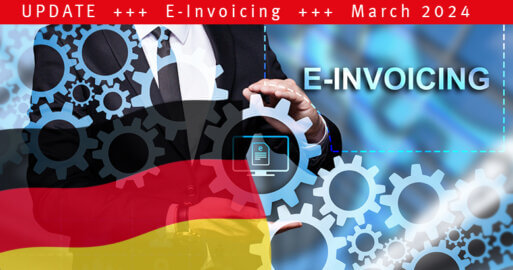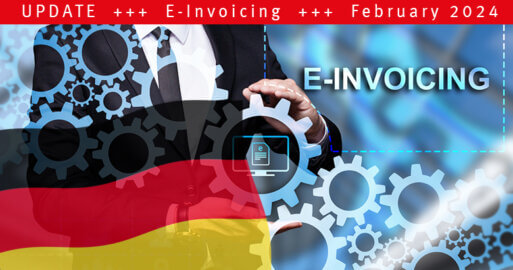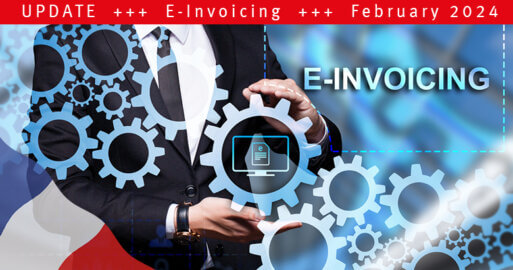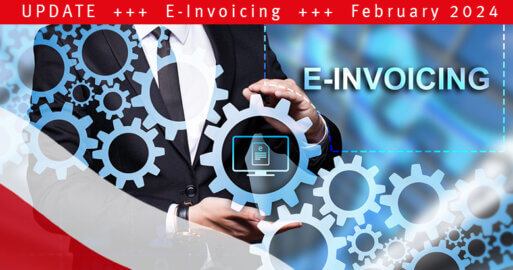E-Invoicing in Poland via PEPPOL – Mandatory by November 2020
 The formats UBL 2.1, UN / CEFACT CII and PEPPOL BIS Billing 3.0 are already accepted in Poland for invoices to the Federal Government. For e-procurement, the EU focuses on PEPPOL. In many member states of the European Union PEPPOL is used increasingly. Please read our blog for an introduction to PEPPOL. In Poland, PEPPOL is a good (though not the only) option for business-to-government (B2G) e-invoicing.
The formats UBL 2.1, UN / CEFACT CII and PEPPOL BIS Billing 3.0 are already accepted in Poland for invoices to the Federal Government. For e-procurement, the EU focuses on PEPPOL. In many member states of the European Union PEPPOL is used increasingly. Please read our blog for an introduction to PEPPOL. In Poland, PEPPOL is a good (though not the only) option for business-to-government (B2G) e-invoicing.
Poland recommends B2G e-invoicing since April 2019
In December 2018, the Polish government began testing its national service platform ‘Platformy Elektronicznego Fakturowania’ (PeF). Since its completion, PeF has supported two important public electronic services (electronic orders and electronic invoices). The new platform consists of PEPPOL ‘Access Points‘ implemented by two service providers.
Implementation phases of the electronic invoicing platform (PEF) so far:
• Phase 1 – Presentation of the prototype 18.09.2018 – 20.09.2018
• Phase 2 – Introduction of the test versions 18.12.2018 – 20.12.2018
• Phase 3 – Delivery of the productive version 18.01.2019 – 20.01.2019
• Phase 4 – Connection with the Desktop Application 07.03.2019 – 11.03.2019
The deadlines of the mandate for B2G:
• Since April 2019, all contracting authorities have been obliged to receive electronic invoices. On a voluntary basis, suppliers can now issue electronic invoices to public purchasers.
• From November 2020, all suppliers will be obliged to issue only electronic invoices to public authorities.
E-Invoicing in Poland: How is the invoice data transferred?
The electronic exchange of documents is based on an online portal (PeF), which acts as an intermediary between companies and the public administration. This is comparable to the process in the Netherlands (Simpler Invoicing) and Belgium (Mercurius).
The Polish PeF platform has been available since April 2019. It accepts electronic invoices according to the European standard EN 16931-1 in the formats UBL 2.1, UN / CEFACT CII and PEPPOL BIS Billing 3.0. BIS is an abbreviation for Business Interoperability Specifications.
With SEEBURGER Cloud Services, EU-compliant invoices can be expediently sent to authorities and other partners in Poland via PEPPOL. Below is as an example using the PEPPOL BIS 3.0 format:
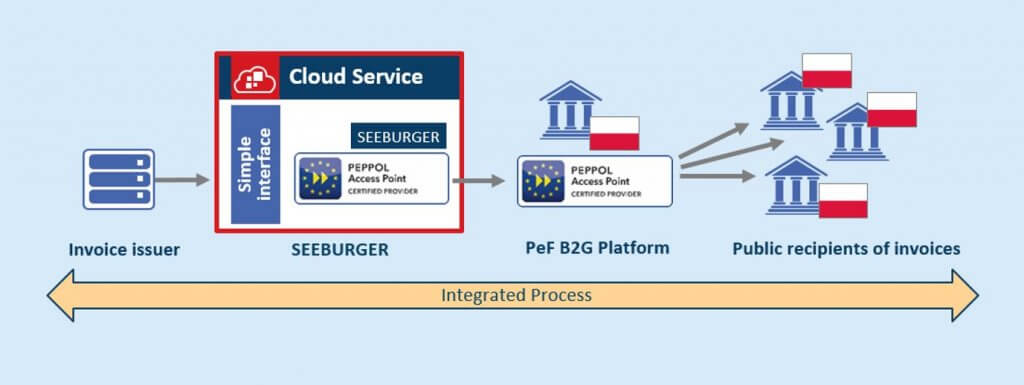
With regards to the requirements of the EU Directive 2014/55 / EU, the PeF platform serves as an electronic ordering and invoice exchange platform for public procurement. It complies with the European standard, since the selected format type is based on PEPPOL-BIS and its eDelivery Network. The PEPPOL eDelivery network requires the use of PEPPOL access points to send the structured invoices to the PeF portal.
Summary
Poland is one of many European countries that are preparing for the EU directive deadline of April 2019. For B2G suppliers, time is fast running out since invoices will have to be issued electronically from November 2020 onwards.
The PEPPOL infrastructure is the first choice for many countries to increase their openness to international trade. PEPPOL is currently in use in 16 countries in Europe; PEPPOL authorities already exist in 8 countries. The number of PEPPOL authorities grows to 11 with the addition of the first non-European country, Singapore, as well as Germany and now also Poland.
We see a growing trend in countries such as Sweden, Norway, Finland, Croatia and – now – Poland to introduce PEPPOL in order to be able to meet the requirements of the deadline for electronic procurement in a timely manner.
E-invoicing remains complex despite increasing standardization. Depending on the country, the technical specifications and the speed of innovation can vary considerably.
A scalable and future-proof e-invoicing solution should therefore come from a single source run by an experienced cloud partner who understands, and can meet the various requirements of different countries. Alternatively, you can choose to implement and operate all of this yourself, or work with individual local providers in each respective country. In the latter case however, each local provider will have to be individually managed and monitored.
The e-invoicing solution must be able to handle PEPPOL and other formats if necessary. Also, the solution needs to be connected easily and reliably to your respective ERP system holding the invoice data in the respective country.
SEEBURGER offers a ‘Plug-and-Play’ Cloud Service for Poland, to which you can transfer the invoice data in a standard format. Our e-invoicing services are independent of the ERP system and include the archiving required by law in Poland.
Thank you for your message
We appreciate your interest in SEEBURGER
Get in contact with us:
Please enter details about your project in the message section so we can direct your inquiry to the right consultant.
Written by: Andreas Killinger
Andreas Killinger joined SEEBURGER in 2014 and is a product manager, responsible for EDI services and software applications. He specialises in SAP solutions, as well as electronic invoicing (e-invoicing) for globally active customers. Following an apprenticeship as an industrial mechanic and a degree in law and administration, he had various roles in the public sector. He then worked for IBM as an SAP Senior Consultant and SAP Project Manager in international SAP projects from 1999 to 2013.

